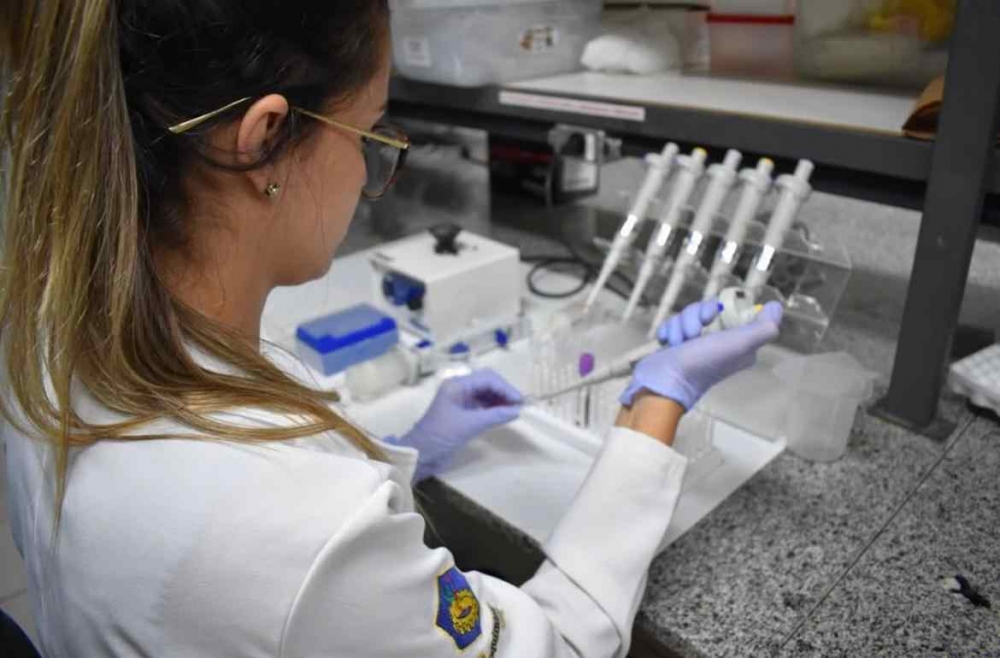


Scientists are seeking to complete clinical trials of the therapeutic vaccine, a process that can take years and require significant investment (image: Vet Solutions)
Published on 11/10/2025
By Roseli Andrion | Agência FAPESP – For many dog owners, a canine visceral leishmaniasis diagnosis for their pet can mean facing the painful decision of euthanasia. This zoonotic disease significantly impacts public health and can be fatal in up to 90% of cases if left untreated.
It is part of a group of neglected tropical diseases that receive less investment in drug and vaccine research and development, despite affecting millions of people in developing countries. In Brazil, the disease is still associated with regional inequalities, affecting rural areas and vulnerable communities more severely. Unsurprisingly, the most affected states are Maranhão, Piauí, Ceará, Bahia, Pará, Minas Gerais, Tocantins, and Mato Grosso do Sul, with a high incidence of new cases.
The Ministry of Health currently recommends euthanizing dogs diagnosed with the disease. For animals with owners, this practice causes emotional distress for families and is ineffective in controlling the disease. “It isn’t easy for them to euthanize their animals. Often, they keep the animals at home and don’t take the necessary measures,” says Reysla Mariano, PhD in biochemistry and molecular biology.
High transmission rate
Between 2011 and 2020, for example, more than 33,000 cases of leishmaniasis were confirmed in Brazil – an average of 3,300 per year – according to Ministry of Health data. The visceral form of the disease, which is more severe and potentially fatal, had an average of 2,000 reported cases annually. As a zoonosis, visceral leishmaniasis connects animal and human health; thus, the lack of control in dogs directly impacts new cases among people.
Current preventive measures include the use of repellent collars and insecticides, but these options are only moderately effective. “Even with these strategies, we still have a high transmission rate,” Mariano points out. For the Ministry of Health, this is a public health challenge, especially when it involves stray dogs, as controlling them becomes virtually impossible.
The disease is transmitted by a specific vector, the phlebotomine sand fly. When this insect bites an infected dog and then a human, it can transmit the parasite that causes leishmaniasis to the human. “The animal is a reservoir for the parasite,” Mariano explains. “To prevent the spread of the disease, effective control measures are needed.”
Unprecedented formulation
The research group of Professor Rodolfo Giunchetti is studying the development of this formula. Giunchetti is an experienced veterinarian specializing in vaccines against canine visceral leishmaniasis, and he is a professor at the Federal University of Minas Gerais (UFMG). Mariano’s academic career led her to Giunchetti, and she devoted herself to researching the development of the therapeutic vaccine. “Since my doctorate, I’ve been researching neglected diseases,” she recalls.
The group’s vaccine is unique in its mechanism of action. It prevents infection spread by inducing an immune response in dogs with visceral leishmaniasis. This response prevents the parasite from being transmitted to the insect vector. This means that if a sand fly bites a vaccinated dog, the parasite cannot be transmitted. “We’ve been very successful with the proof-of-concept and preliminary tests,” says Mariano.
She points out that creating vaccines against parasites is more complex than creating vaccines against viruses or bacteria. This is because parasites, such as Leishmania, use sophisticated strategies to evade the immune system. This difficulty explains why the market still lacks consolidated solutions in this area.
Therefore, the technology is a significant advance. The potential impact of the formulation extends beyond animal health. Canine visceral leishmaniasis is a public health challenge that affects humans, so the Ministry of Health is interested in its prevention. The project was supported by FAPESP’s Innovative Research in Small Businesses Program (PIPE).
The creation of the therapeutic vaccine against canine visceral leishmaniasis illustrates the potential of Brazilian science. For it to progress, however, there must be convergence between quality research, public policies for promotion, adequate infrastructure, and entrepreneurial vision.
Branch in São Paulo
The development of the immunobiological product involves successive phases of clinical trials with regulatory rigor and high costs. Phase 2 trials were scheduled to take place in municipalities in northern Minas Gerais, an endemic region near Montes Claros. “The most affected regions are somewhat neglected with limited resources,” the researcher describes. “In addition, they’re places with less access to information.”
To continue the process, the startup opened a branch in São Paulo. Support for this came from the National Industrial Learning Service (SENAI). The institution, which is often associated only with technical training, also supports innovation. To this end, it maintains an advanced biotechnology laboratory with equipment that allows for molecular manipulations and clinical trials on a laboratory scale.
Mariano comments that the SENAI Institute for Innovation (ISI) in Biotechnology played a key role in advancing the research. “They have a very good structure that provided the support and conditions to continue the research that we started in Minas Gerais,” she says. “SENAI offered us the opportunity to transform basic research into something more applicable that could be commercialized.”
Future of the research
The scientists involved in the project hope to complete clinical trials of the therapeutic vaccine, a process that can take years and require significant investment. Once the formula’s effectiveness is proven, the expectation is that the technology will be licensed to veterinary pharmaceutical companies. “The goal has always been to develop and transfer it.”
The pandemic has demonstrated how dependence on foreign inputs and technologies can paralyze science and health in Brazil. “During the pandemic, we realized the importance of valuing domestic products and Brazilian researchers. When everything was shut down, we were left without access to many items.” This dependence is even more critical in the field of neglected diseases, as commercial interest in them is usually low.
Source: https://agencia.fapesp.br/56416